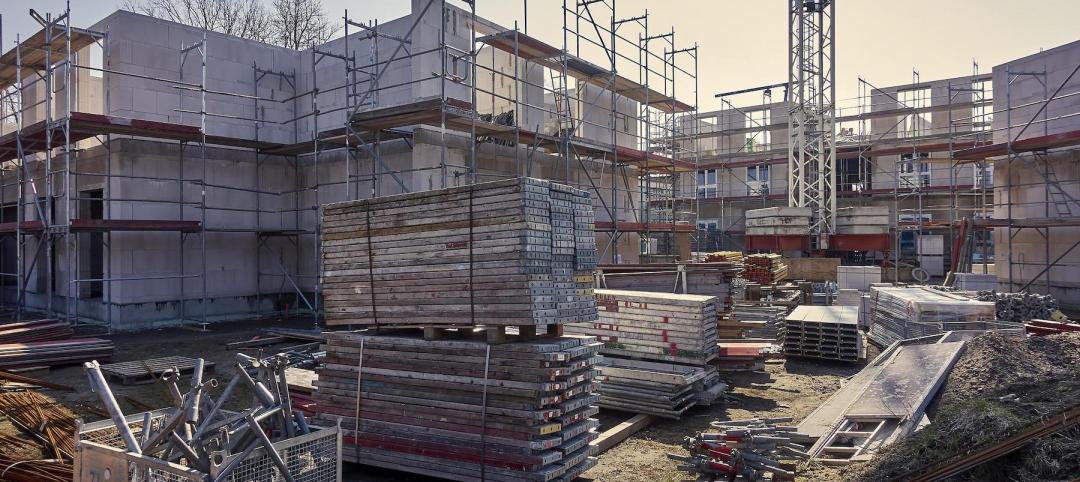The Biden Administration’s proposal on building materials rules used on federal construction and federally funded state and local buildings would significantly boost the made-in-America mandate.
In the past, products could qualify as domestically made if at least 55% of the value of their components were from the U.S. The administration intends to increase the percentage of value in stages from 55% to 60%, and then to 75%.
Implementing these rules will add complexity to sourcing materials for projects receiving federal funding. For example, a mix between U.S. and Canadian dimensional lumber for a project probably wouldn’t be allowed if the Canadian wood was processed outside the U.S. But domestically manufactured lumber made from Canadian logs would likely be acceptable.
The domestic mandate has raised concerns from construction industry groups. The National Association of Home Builders has urged exemptions for single-family and multifamily affordable housing projects. Kojo, a firm that makes materials management software for contractors, says that restricting the supply base to American-made is likely going to burden contractors who are already having difficulty sourcing materials at reasonable costs.
According to the Biden Administration, the proposed rule directs the following changes to strengthen Buy American requirements:
- “Make Buy American Real” and close loopholes by raising the domestic content threshold. The Buy American statute says products bought with taxpayer dollars must “substantially all” be made in the U.S. However, today, products could qualify if just 55%–just over half—of the value of their component parts was manufactured here. The NPRM proposes an immediate increase of the threshold to 60% and a phased increase to 75%. This proposal would close a problematic loophole in the current regulation, while also allowing businesses time to adjust their supply chains to increase the use of American-made components. If adopted, this change would create more opportunities for small- and medium-sized manufacturers and their employees, including small and disadvantaged enterprises, from all parts of the country. To support this work, the Small Business Administration has created a new manufacturing office in its federal contracting division.
- Strengthens domestic supply chains for critical goods with new price preferences. As the pandemic made clear, supply chain disruptions can impact the health, safety, and livelihoods of Americans—leaving us without access to critical goods during a crisis. Some products are simply too important to our national and economic security to be dependent on foreign sources. The NPRM proposes applying enhanced price preferences to select critical products and components identified by the Critical Supply Chain review, mandated under E.O. 14017, and the pandemic supply chain strategy called for under E.O. 14001. These preferences, once in place, would support the development and expansion of domestic supply chains for critical products by providing a source of stable demand for domestically produced critical products.
- Increases transparency and accountability in Buy American rules. Reporting challenges have hampered implementation of Buy American rules for decades. Currently, contractors only tell the government if they meet the content threshold rather than reporting the total domestic content in their products. The NPRM proposes to establish a reporting requirement for critical products. The new reporting requirement would bolster compliance with the Buy American Act and improve data on the actual U.S. content of goods purchased. More complete and accurate data would be used to target future improvements to support America’s entrepreneurs, farmers, ranchers, and workers— and along the way, create good jobs and resilient communities.
Learn more about the Buy American Rule at Whitehouse.gov.
Related Stories
Coronavirus | May 20, 2022
Center for Green Schools says U.S. schools need more support to fight COVID-19
The Center for Green Schools at the U.S. Green Building Council released a new report detailing how school districts around the country have managed air quality within their buildings during the second year of the COVID-19 pandemic.
Regulations | May 20, 2022
Biden’s Clean Air in Buildings Challenge aims to reduce COVID-19 spread
The Biden Administration recently launched the Clean Air in Buildings Challenge that calls on all building owners and operators, schools, colleges and universities, and organizations to adopt strategies to improve indoor air quality in their buildings and reduce the spread of COVID-19.
Codes and Standards | May 19, 2022
JLL launches non-profit aiming to mitigate climate change
Real estate and investment management firm JLL recently launched JLL Foundation, a non-profit dedicated to making a long-term impact on environmental sustainability.
Biophilic Design | May 18, 2022
Horticulturalists conduct research study to understand the value of biophilic design
Benholm Group, horticulturalists that have pioneered the use of plants for interiors over the past 27 years, are collaborating on a research study to understand the value of biophilic design, according to a news release.
Building Team | May 17, 2022
MKA’s Embodied Carbon Action Plan will include reporting on carbon reductions for selected projects
Magnusson Klemencic Associates (MKA) recently released its SE 2050 Embodied Carbon Action Plan (ECAP) for 2022.
Codes and Standards | May 16, 2022
AIA releases Justice in the Built Environment guide
The American Institute of Architects (AIA) recently published a new supplementary edition of the Guides for Equitable Practice, titled “Justice in the Built Environment.”
Codes and Standards | May 12, 2022
Solar industry creates non-profit to remove barriers to clean energy deployment
The Solar Energy Industries Association (SEIA) is launching a 501(c)3 non-profit organization to accelerate the transition to carbon-free electricity.
Green Specifications | May 12, 2022
MG2’s Sustainable Materials Evaluation System
Learn how MG2’s Sustainable Materials Evaluation System helps clients, prospects, and staff choose the most environmentally feasible materials for their building projects. Candon Murphy, LEED GA, Assoc. IIDA, Design Lab Manager and Materials & Sustainability Specialist with MG2, speaks with BD+C Executive Editor Rob Cassidy.
Esports Arenas | May 11, 2022
Design firm Populous partners with esports company on digital art NFT collection
Design firm Populous and multidiscipline esports organization Kansas City Pioneers have partnered on a five-part NFT collection.
Market Data | May 10, 2022
Hybrid work could result in 20% less demand for office space
Global office demand could drop by between 10% and 20% as companies continue to develop policies around hybrid work arrangements, a Barclays analyst recently stated on CNBC.

















